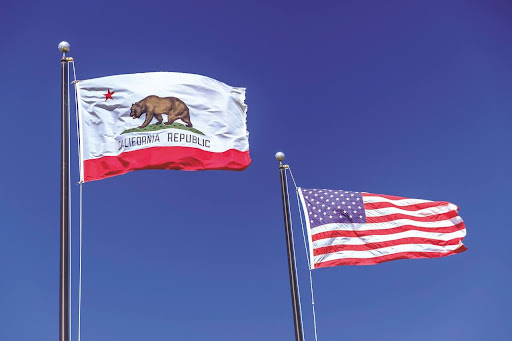California’s tribal gaming sector drove significant economic growth across the state last year, with new data showing tribal casinos nationwide hit $41.9 billion in gross gaming revenue during the 2023 fiscal year. The state’s 66 tribal casinos generated roughly a third of that total, adding billions to California’s economy and creating thousands of jobs.
The National Indian Gaming Commission found that California and Northern Nevada tribal venues pulled in about $12 billion of the $41.9 billion generated by over 500 tribal casinos nationwide. The numbers indicate steady growth in an industry that has become vital to tribal communities and California’s broader economy.
New Legal Framework Protects Tribal Gaming Rights
Governor Gavin Newsom signed Senate Bill 549 last September, giving federally recognized tribes the power to challenge commercial card rooms in court over games that might violate tribal exclusive gaming rights.
The bill sailed through with bipartisan support, passing the Assembly 62-0. The new law clarifies California’s complex gaming rules while ensuring that tribes can uphold their sovereign gaming rights under federal law and state-tribal compacts.
SB 549 tackles long-running disputes over “third-party proposition player services” that commercial card rooms use to offer games usually reserved for tribal casinos. Players seeking alternatives to traditional gaming platforms with stringent verification requirements now have more options, including no-KYC casino platforms that bypass extensive documentation as the regulatory landscape becomes clearer.
Economic Impact Reaches $35 Billion Each Year
The American Gaming Association reports that California tribal casinos contribute nearly $35 billion to the state’s economy each year, while generating approximately $8.5 billion in gross gaming revenue. That’s over 25% of all tribal casino revenue across the United States, putting California second only to Nevada in gaming market size.
The industry employs 184,700 people statewide and brings in $5.8 billion in tax revenue. Tribal gaming operations alone create over 63,000 direct jobs covering gaming operations, hotels, restaurants, retail, and management. These jobs provide steady paychecks in communities throughout California.
California’s 66 tribal casinos work under gaming compacts with 67 tribes, plus three more tribes operating under federal Secretarial Procedures. The compacts allocate revenue between gaming and non-gaming tribes through the Revenue Sharing Trust Fund, which disburses $1.1 million annually to every eligible non-gaming tribe.
Investment in Community Development and Infrastructure
Tribal governments put gaming revenue toward essential community services and infrastructure projects. The Indian Gaming Regulatory Act requires that all gaming revenue be allocated to government or charitable purposes, allowing tribes to invest in healthcare, education, housing, and economic development.
Recent approvals include a $700 million casino project by the Scotts Valley Pomo Indians, which got environmental clearance and regulatory approval. The project is expected to create thousands of construction and permanent jobs, while generating tax revenue for local governments and funding tribal community programs.
Many existing tribal casinos are expanding beyond gaming to become full resort destinations. These upgrades include spas, golf courses, concert venues, and restaurants designed to attract both local customers and tourists seeking comprehensive entertainment experiences.
Future Growth and Modernization Efforts
Industry leaders anticipate continued growth, with tribal casinos focusing on technology upgrades and facility expansions to remain competitive. The California Nations Indian Gaming Association says tribal gaming works as “a powerful economic engine”, generating $7.8 billion for California’s economy under strong regulatory oversight.
Recent compact talks have expanded gaming options for some tribes, with newer agreements allowing more gaming machines and table games, such as roulette and craps. Governor Newsom signed 25-year gaming compacts with six tribes in 2021, waiting for legislative approval and federal sign-off.
Sports betting legalization efforts got pushed back to 2028, but tribal leaders want all California tribes unified for future legislative pushes. The delay provides time for thorough planning, which secures broad tribal support for any proposed expansion of gaming.
The tribal gaming industry’s record revenue performance, combined with stronger legal protections and ongoing investment in facilities and communities, positions California’s tribal casinos for continued growth as major contributors to the state’s economy and efforts to promote tribal independence.











